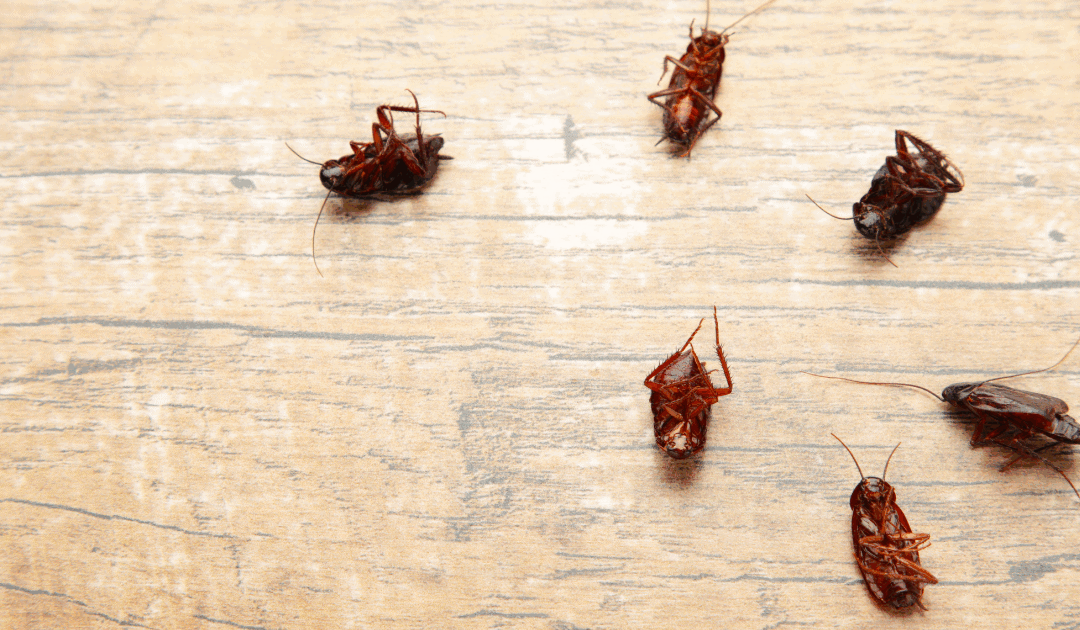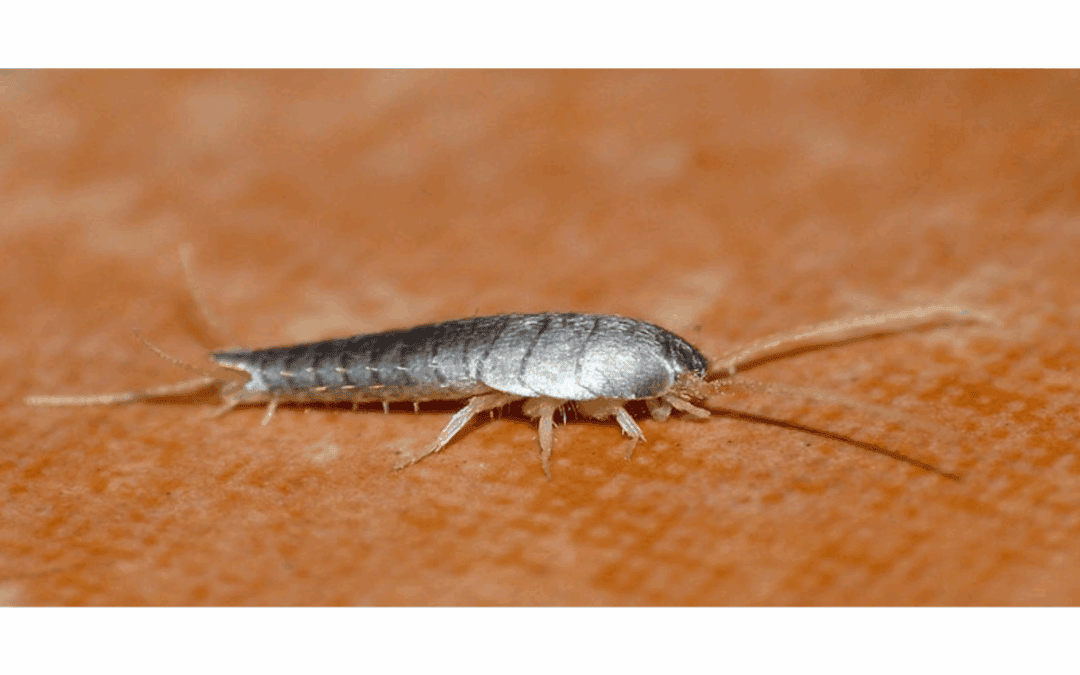READY TO GET STARTED?
REQUEST A FREE ESTIMATE
Fill out the form below or call (336) 226-1448 for a free, no-obligation estimate.

As winter settles across North Carolina, many homeowners look forward to a reprieve from common pests. However, the cooler weather often drives insects and rodents indoors in search of warmth, food, and shelter. For homeowners committed to sustainable living, managing these unwanted guests requires an approach that is both effective and environmentally responsible. Eco-friendly pest control, often known as Integrated Pest Management (IPM), provides a comprehensive and conscious solution. This strategy prioritizes long-term prevention and minimizes reliance on chemical applications. This guide will explore practical, green pest control solutions to help you maintain a comfortable and pest-free home this winter.
Choosing an eco-friendly pest management plan offers significant benefits beyond just resolving a pest issue. It is a responsible choice that contributes to a healthier living environment for your family and pets by reducing the introduction of unnecessary materials into your home. This approach focuses on understanding pest biology and behavior to create smart, sustainable solutions.
By addressing the root causes of an infestation—such as entry points and attractants—IPM provides more durable results than conventional treatments alone. It is a proactive method that protects your property while respecting the surrounding ecosystem.
Even during North Carolina’s milder winters, several pests remain active and are likely to seek refuge indoors.
As temperatures drop, rodents are among the most common pests to invade homes. They can squeeze through tiny openings to access the warmth and food supplies within your house.
Cockroaches are a year-round problem, but they become more noticeable indoors during winter as they seek shelter from the cold.
An increase in spiders during the winter is often a sign of another pest problem, as they follow their food source—other insects—indoors.
While preventative measures are essential to any eco-friendly pest control plan, there are times when professional assistance becomes necessary. A pest control company with expertise in Integrated Pest Management (IPM) can provide tailored solutions that address infestations effectively while prioritizing environmentally responsible methods. By partnering with professionals, you can ensure a comprehensive approach that protects your home and aligns with your commitment to sustainable living.

Green pest control is an environmentally conscious approach to managing pests that goes beyond simply choosing “natural” products. Often referred to as Integrated Pest Management (IPM), it focuses on understanding pest biology and behavior to design precise solutions. Instead of broad applications, this method relies on targeted actions and prevention to provide long-term results.
The IPM process generally includes:
This strategy emphasizes non-chemical options first, reducing exposure for your family, pets, and beneficial wildlife.
Green pest control prioritizes precision. Instead of a one-size-fits-all spray, professionals use treatments that directly address the problem. For example, an ant infestation may be handled by targeting the nest with baits instead of treating the entire yard. This focused approach often delivers stronger, longer-lasting results.
Rather than reacting to infestations, green pest control is proactive. By sealing entry points, reducing excess moisture, and eliminating food sources, your home becomes less appealing to pests in the first place. Addressing the root causes leads to fewer long-term issues compared to repeated treatments.
This method minimizes harm to the surrounding environment. Non-chemical solutions are the first line of defense, and targeted treatments are only used when necessary. This protects pollinators, pets, and beneficial insects while still managing pests effectively.
This approach is well-suited for nearly any household and can be customized to address common North Carolina pests such as ants, cockroaches, spiders, and rodents. It’s especially beneficial for families with children, pets, or individuals with sensitivities.
Working alongside your provider helps maximize results. Homeowners can:
Some preventative measures can be done on your own, but a comprehensive IPM program is best designed by professionals. A trained pest control technician can correctly identify pests, uncover hidden vulnerabilities, and create a plan tailored to your home.

As fall settles across North Carolina, homeowners often notice an unwelcome increase in pests, especially smoky brown cockroaches. While typically an outdoor species, October is prime time for these roaches to move indoors, seeking warmth and moisture as temperatures drop. Understanding their behavior is the first step toward keeping them out of your home.
This guide explains why smoky brown cockroaches are more active in October and offers practical prevention tips to protect your property.
Smoky browns are large, dark brown to mahogany cockroaches that thrive outdoors in warm, moist environments such as mulch beds, woodpiles, leaf litter, and gutters filled with debris.
In October, dropping nighttime temperatures trigger their search for overwintering sites. Your home—with its heated interior, plumbing, and sheltered spaces—is the perfect target. Strong fliers and attracted to lights, these cockroaches often enter through open doors, windows, or small structural gaps.
While smoky brown cockroaches don’t bite, they can carry bacteria and germs from unsanitary areas, contaminating food surfaces, utensils, and stored items. Their droppings and shed skins can also trigger allergic reactions and asthma, especially in children and sensitive individuals.
Indoor infestations often signal underlying moisture issues, such as leaky pipes, clogged gutters, or poorly ventilated crawl spaces. Fixing these conditions while addressing the infestation protects both your home and your health.
Inspect your home’s exterior and seal cracks and gaps in the foundation, around windows, and where utility lines enter. Install weather stripping on doors, repair screens, and cover vents or drains with fine mesh.
Make your property less appealing by cleaning gutters, directing downspouts away from the foundation, storing firewood away from the house, and removing leaf litter or organic debris. Improve ventilation in crawl spaces and attics to reduce damp areas.
Since smoky browns are attracted to lights, consider switching to yellow or sodium vapor bulbs, which draw fewer insects.
Smoky brown cockroaches often hide in hard-to-reach areas, making an established infestation difficult to fully address with DIY methods. When prevention measures aren’t enough, a pest control professional can help identify entry points, locate harborage areas, and suggest a targeted plan to manage the population effectively.
Having expert guidance ensures the problem is addressed as soon as possible and thoroughly, giving homeowners confidence that their home is protected as the cooler months arrive.

September in North Carolina brings a shift in pest activity as insects, rodents, and other critters look for warmth and food before cooler weather arrives. Staying ahead of these seasonal changes can make all the difference in keeping your home comfortable and pest-free. This year, homeowners are paying attention to prevention, eco-conscious choices, and smarter seasonal strategies that work with nature rather than against it. Here are 3 pest control trends North Carolina homeowners should pay attention to this fall!
Homeowners are moving away from reacting to infestations and instead focusing on preventing pests from getting in at all. Sealing cracks, repairing screens, and keeping yards tidy can go a long way toward reducing pest pressure. In North Carolina, where warm weather can linger into fall, pests like ants, roaches, and rodents are quick to take advantage of even the smallest entry point.
More people are also scheduling seasonal inspections to address problem areas before pests become active. These proactive checks help spot things like moisture buildup, unsealed utility lines, or debris around the foundation — all of which can invite unwanted visitors.
Many families are choosing pest control options that protect their home without harming beneficial insects or the surrounding environment. This might include plant-based treatments, targeted bait stations, or exclusion methods that keep pests out without the need for widespread chemical applications.
North Carolina’s varied climate means different regions face different pest pressures, and eco-conscious approaches are proving effective in both urban neighborhoods and rural areas. Whether it’s using a botanical spray for mosquitoes or a physical barrier to block rodents, these methods allow homeowners to protect their space in a way that supports long-term balance.
Another growing pest control trend is staying in tune with the seasonal behavior of pests. As September rolls in, mosquitoes, wasps, and ants may still be active, while spiders and rodents start preparing for winter. Knowing what’s most likely to show up — and when — helps homeowners focus their efforts where they’ll matter most.
For example, late summer rains can lead to a spike in mosquito populations, while cooler evenings can send rodents looking for shelter indoors. Simple actions like cleaning gutters, storing firewood away from the house, and trimming vegetation can make a big difference this time of year.
September is the perfect time to combine prevention, eco-friendly solutions, and seasonal awareness for the best pest protection. By staying proactive and addressing issues before they become infestations, you can enjoy a more comfortable home all season long. If you’re unsure where to start, a trusted local pest expert can help identify the right pest control strategies for your property and the pests common to your area.

If you’ve been noticing silver-colored, squirmy insects darting across your bathroom floor or hiding in kitchen corners, you’re not alone. Silverfish are a common household pest in North Carolina, especially in dark, damp, and humid spaces. While they don’t bite or sting, their presence can be unsettling, and they may damage books, clothing, wallpaper, and cardboard over time.
Understanding why silverfish invade and how to manage their presence is key to keeping your North Carolina home pest-free. This guide breaks down the common causes and offers practical tips — including eco-friendly options — to prevent and control them the healthier way.
North Carolina’s warm, humid climate makes it a hotspot for silverfish activity, particularly in homes that provide moisture and shelter. Here’s why you might be seeing these pests indoors.
Silverfish are attracted to high humidity levels, especially above 70 percent. That’s why they often appear in:
These spaces stay damp and offer ideal conditions for silverfish to thrive year-round.
Silverfish prefer to hide where they won’t be disturbed. You’re most likely to find them:
Silverfish eat starches, proteins, and sugary residues, often found in:
Their diet makes cluttered or paper-filled areas especially vulnerable.
Silverfish are active throughout the year in North Carolina. However, rainfall and seasonal temperature shifts can push them indoors in search of more stable, humid environments.
The good news? You don’t need to rely on harsh chemicals to get silverfish under control. These earth-friendly, low-impact methods can reduce pests while keeping your family, and the planet — healthy
The most effective way to make your home less inviting to silverfish is to reduce moisture.
Removing clutter limits the hiding spots and food sources silverfish rely on.
Stopping silverfish before they get inside is one of the most effective (and eco-conscious) solutions.
Silverfish dislike certain natural scents and materials. Try:
If eco-friendly steps haven’t solved the problem or if the infestation seems to grow, it’s time to bring in a pest control professional. Many North Carolina pest control providers now offer green pest control solutions that use targeted treatments with minimal environmental impact.
Silverfish are persistent, but they don’t have to take over your home. With smart prevention habits, humidity control, and eco-conscious deterrents, you can create a cleaner, greener home that’s less attractive to pests. Whether you prefer DIY methods or want help from a green-certified pest control pro, the path to a silverfish-free home starts with understanding what they need to survive, and removing it.